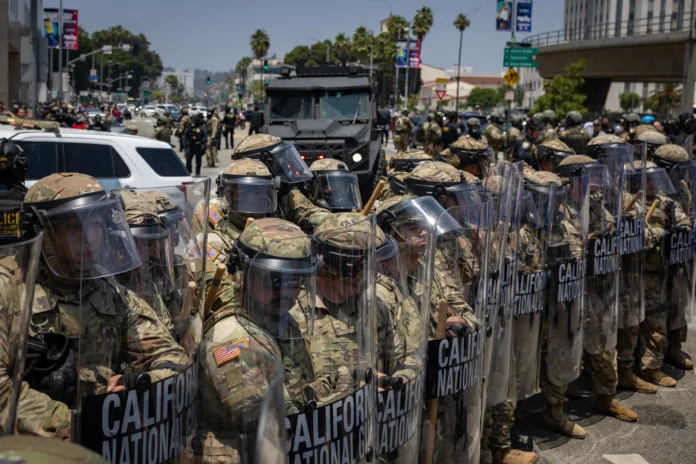California challenges Trump’s National Guard order following the weekend deployment of troops to Los Angeles County. State leaders are preparing legal action. On Monday, California Attorney General Rob Bonta announced the state’s intent to sue the Trump administration. He accused the former president of abusing federal authority.
President Trump invoked Title 10 of U.S. Code to activate the National Guard. That statute applies only during invasions or rebellions. However, Bonta stated that California is not experiencing either. “There is no invasion, and there is no rebellion,” Bonta declared in a press release.
Despite protests turning violent in Los Angeles, state officials argue they remained manageable. Bonta criticized the move as unnecessary and politically motivated.“President Trump’s order undermines local leadership,” he added. “It disregards the judgment of California’s governor and law enforcement agencies.”
The National Guard was sent into the streets following demonstrations over immigration enforcement raids. Some protests escalated into vandalism and looting.
Even so, local leaders believed they could handle the situation without federal troops. They accused Trump of using military force for political optics.
California challenges Trump’s National Guard order by claiming it exceeds presidential authority. Bonta argued that the president seeks to provoke fear and conflict. The attorney general also stated that the legal filing would be released soon. Details of the suit were not immediately available.
Trump’s critics say this pattern follows similar actions during previous unrest. They claim he often bypassed state authority to project control. Meanwhile, the White House has not yet commented on the lawsuit. Trump’s team has defended the deployment as necessary to restore public order.
Bonta, however, said the action only worsened tensions. He warned that federal overreach threatens both safety and constitutional rights. California challenges Trump’s National Guard order in what could become a major legal battle. The case may test the limits of federal power during domestic crises.
Observers now wait to see how the courts respond. The conflict signals growing tension between state and federal leadership on security matters.
For more political updates, visit DC Brief.


